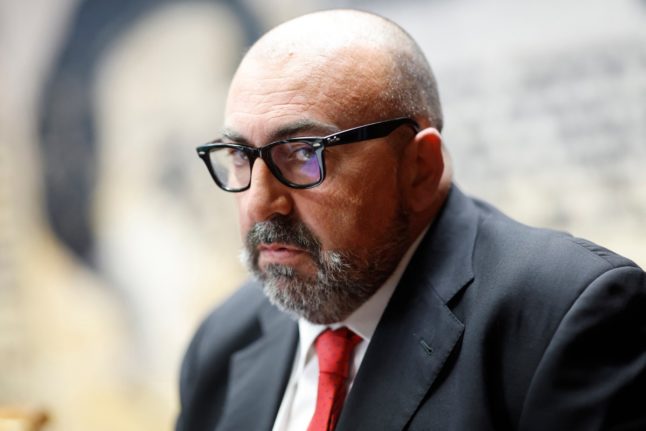Recent polling from Spain’s CIS (Centre for Sociological Research) shows the incumbent PSOE-led government with a slight, but shrinking, advantage over opposition parties.
On 30.3 percent, Pedro Sánchez’s PSOE would form the government if elections were held today, but that score is unimproved since April and, crucially, the centre-right party Popular Party is gaining, polling at 28.7 percent in May, with the difference between the two now only 1.6 percent.
In fact, PP have been on a steady rise since a turbulent start to 2022 in which former leader Pablo Casado was forced to resign after becoming entangled in intra-party infighting with PP’s regional President in Madrid, Isabel Ayuso.
Casado was replaced by Galician Alberto Núñez Feijóo, considered to be a more traditional centre-right candidate in the mould of Rajoy, who served as President of Galicia between 2009-2022.
PROFILE: Feijóo, steady hand on the tiller for Spain’s opposition party
Whereas Casado was often drawn into scandal and outflanked on cultural issues by far-right Vox, Feijóo is considered a more conventional conservative less prone to populism, and his short tenure as leader has put the PP back on the road to electoral respectability.
PP were polling around 21 percent in February, amid the public infighting, but since then have steadily risen to the 28.7 percent that they would get if an election were held today, according to recent CIS numbers.
Yet, while many view Feijóo as more centrist than his predecessor, at the regional level far-right Vox have entered into a regional government coalition with PP in Castilla y León.
With important regional elections looming in Andalusia in June, and a general election further down the line in December 2023, it remains unclear if PP would be forced to rely on Vox to overcome PSOE’s thin polling advantage and form a national government.
Crucially, PP’s recent rise has not chipped away at Vox’s polling numbers. According to the CIS, Vox’s polling numbers grew from 14.8 percent in April to 16.6 percent in May, and with centrist Cuidadanos all but electorally wiped out, hovering around 2 or 3 percent all year, and the far-left, junior coalition partner Podemos falling further in the polls, to below 10 percent, the CIS estimate a higher probability of a right-wing PP-Vox (45 percent) than they do a PSOE-Podemos (39.9 percent) government.
With Vox now firmly established as Spain’s third political party and already on the offensive in Castilla y Leon’s regional government – including its Minister of Industry, Commerce and Employment in the assembly recently declaring war against “the virus of communism” – all eyes will be on the upcoming Andalusian regional elections to see if PP is again forced to rely on Vox members to form a government.
Vox’s anti-immigrant, anti-Islam, climate-sceptic populist policy programme is controversial, and the prospect of them as junior coalition partner in a national government would be an abrupt change from a government that wants to introduce menstrual leave and provide financial aid to renters.
Their entry into government at the regional level in Castilla y León was the first time they have officially entered into an executive, at any level, although PP have relied on Vox votes in regional assemblies in both Murcia and Andalusia in the past.
READ ALSO: Spanish cabinet approves paid ‘menstrual leave’
Whereas under Casado’s leadership PP were often forced rightward on cultural issues in an effort to stop Vox shaving away at their core electoral base, under Feijóo the future is less clear. Although Feijóo is considered more centrist than his predecessor, Vox’s steady rise since its emergence into Spanish politics since 2014 worries many on the left and centre, particularly as it has now officially entered into government at the regional level.
Yet, Feijóo seems keen to draw some distinction between the two parties. “The leaders of Vox cannot prove experience in management [of the country] because they do not have it, [and] it seems that they do not like the European Union… the State of Autonomies does not satisfy them either,” he said this week, but did recognise their electoral gains as “obvious.”
“The difference between Vox and the PP,” he continued, “is that a good part of Vox leaders came from the PP and left the common home.”
“We are very interested in those votes that those leaders have because they were votes that the PP had. And, as you will understand, we are here to win,” he added.
What exactly that means for the future political makeup of La Moncloa – whether Feijóo intends to win back those votes for PP or keep them in the ‘common home’ and work with Vox in coalition – remains unclear.
With the Sánchez-led coalition having had almost its entire term swallowed up by the global pandemic, then war in Europe, and now a cost of living and inflation crisis, it seems likely the left could lose the next general election and the Spanish right will return to power.
What remains to be seen, however, is whether that means a PP government or a PP-Vox coalition and the prospect of the far-right in government. All eyes will be on Andalusia in June to see how Feijóo pivots his party as it looks ahead to general elections next year.
READ ALSO: What a Vox government could mean for foreigners in Spain



 Please whitelist us to continue reading.
Please whitelist us to continue reading.
Member comments